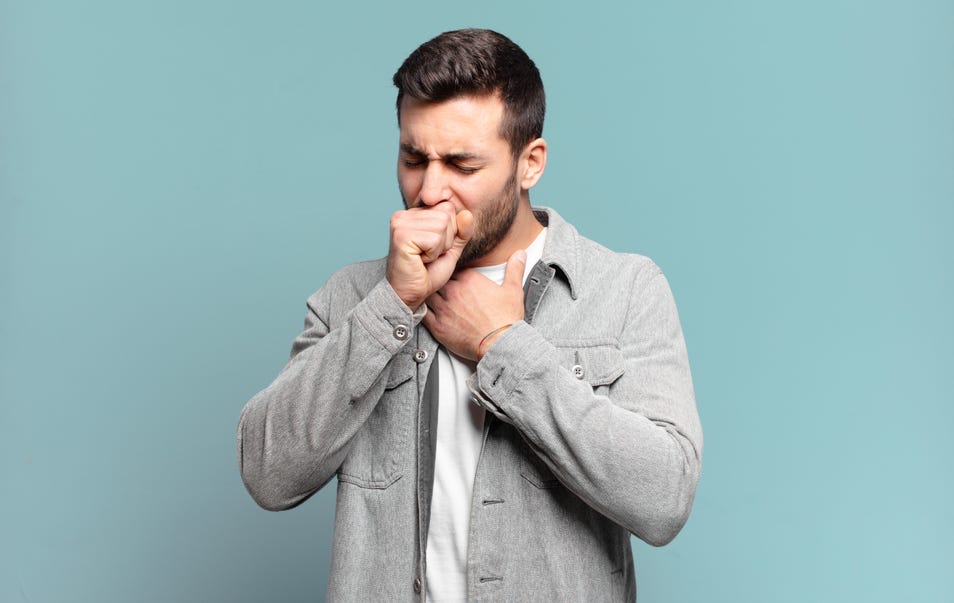IS SWALLOWING MUCUS BAD?
IS SWALLOWING MUCUS BAD?

Whether you're battling with a persistent cold, flu, or seasonal allergies, mucus buildup is one of the body’s natural, though uncomfortable responses.
While we have all, at some point in our lives, questioned the purpose of mucus and what its colour means, another often overlooked question is, “Is swallowing mucus bad?”, “Is it harmful?” or “Should you spit it out instead?”
The answer might surprise you. In this guide, Mucinex® Canada explains what mucus does, why your body produces it, and whether swallowing it poses any health risks.
What is mucus?
Mucus is a slimy, gel-like substance naturally produced by mucus glands present in your body’s mucous membranes. Found in the nose, throat, lungs, and digestive tract, mucus acts as a protective barrier against dust, allergens, bacteria, and viruses.
Its primary role is to offer protection against foreign, harmful invaders by acting as a barrier, trapping and removing harmful substances like dust, allergens, and pathogens before they can cause harm. Additionally, it also lines moist surfaces, such as the airways, digestive tract, and sinuses, preventing tissue from drying out and cracking, which could lead to infection.
What’s in mucus?
Mucus is primarily made up of the following components:
- Water – makes up most of the mucus, giving it slippery texture
- Sugar – helps trap and filter particles like dust and bacteria
- Enzymes – break down harmful pathogens
- Electrolytes– maintain pH balance and fluid consistency
- Protein (Mucin) – give mucus its thick sticky structure
- White blood cells – help fight infection
- Antibodies (Immunoglobulin) – defend against viruses and bacteria
Is swallowing mucus harmful?
No, in most cases, swallowing mucus is completely harmless. Once swallowed, mucus travels down the throat and is broken down in the stomach, just like any other substance.
Although the idea of swallowing mucus might seem unpleasant, rest assured that the digestive acids in the stomach are strong enough to neutralize any bacteria or particles caught in the mucus.
While swallowing mucus is not harmful, it can sometimes feel uncomfortable or irritating. Here are a few simple ways to help clear excess mucus from your throat and nasal passages.
- Stay hydrated by drinking plenty of fluids, such as water, herbal teas, broths, or soups. This helps thin mucus and makes it easier to clear.
- Inhale steam from a hot bowl of water or take a warm shower to loosen mucus in your nasal passages and throat.
- Avoid irritants like smoke, dust, and other similar irritants that can increase mucus production.
- Use over-the-counter relief options like expectorants:
- Expectorants with guaifenesin, such as Mucinex® Chest Congestion 600 mg Tablets, help thin and loosen mucus in the chest.
FAQs
What’s the difference between phlegm and mucus?
While often used interchangeably, mucus is a general term for the slippery substance produced throughout the respiratory tract, whereas phlegm refers specifically to the thicker mucus produced in the lungs and throat, typically during illness, and is often expelled through coughing.
Should you spit out mucus instead of swallowing it?
For most healthy individuals, either option is generally safe. Swallowing mucus is a natural process, but if you prefer to spit it out for comfort or hygiene reasons, that’s fine too. It comes down to personal preference.
Can swallowing mucus cause infections?
No. The acids in your stomach are strong enough to break down and neutralize bacteria and viruses found in mucus, including those from respiratory infections. Your digestive system safely breaks it down without increasing the risk of illness.
